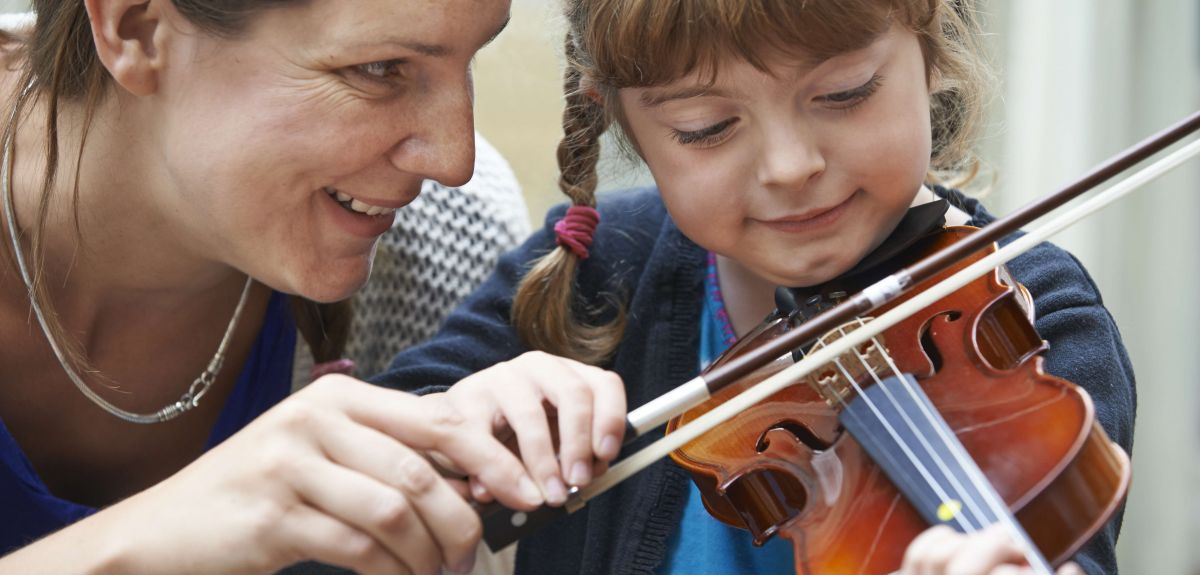
Image credit: Teacher helping a violin student courtesy of Shutterstock
UK children play musical instruments as part of family tradition and not to boost social status
New research suggests that British parents encourage their children to play musical instruments as part of a family tradition, while Americans pursue them as a way to boost their social status.
Dr Aaron Reeves from Oxford University's Department of Sociology found that British parents did not see musical achievement by their children as character building or useful in getting university places or jobs. Instead, it was usually only those parents who played instruments who encouraged their children to follow suit, he says in an article in the journal Cultural Sociology.
Dr Reeves, who analysed interviews with 44 people in the UK, says: 'Respondents do not strongly associate musical practice with developing valued character traits nor with social or educational attainment. Instead, parental encouragement to play music is shaped by family ties and the parental perception of natural talent in their children.'
This contrasted with research carried out by other academics in America, he said. 'Middle-class parents in the United States appear to associate cultural practice with other forms of utility, such as developing specific character traits and facilitating educational success. Middle-class families are very often marked by a pattern of "concerted cultivation", where parents organise music-centred activities for their children, often in addition to school-based musical practice.
'These parents associate musical practice with increasing the possibility of educational success,' he noted. 'The utility of music is not located in the practice itself, but in its capacity to increase the likelihood of educational success and also cultivate other valuable character traits. Parents who raise their children according to the logic of concerted cultivation are also more likely to provide them with a "sense of entitlement".'
Previous researchers attributed this attitude on the part of American parents 'to parental anxiety over the declining fortunes of educated Americans.' These parents are becoming increasingly worried about equipping their children with skills and aptitudes that will help them to stand out from their competitors in the job market. By contrast, the British respondents made no such connection between their parenting style or concerns and future educational or career possibilities. They chose instead to focus on the value of music as a family tradition and, to a lesser extent, as something valuable in its own right. 'British parents who encourage their children to play musical instruments often articulate that support as an effort to forge family cohesion,' Dr Reeves said. In some British families, he noted, music was even 'perceived to be an obstacle to educational success, or at least ancillary to it.'
The interviews were conducted for the Cultural Capital and Social Exclusion research project, which included 44 interviews with adults in 30 households.
The full paper, '"Music’s a Family Thing": Cultural Socialisation and Parental Transference,' appears in the journal Cultural Sociology.
 COVID-19 vaccination during pregnancy offers new insight into preeclampsia prevention
COVID-19 vaccination during pregnancy offers new insight into preeclampsia prevention
 Expert Comment: Should the UK relax clean energy targets?
Expert Comment: Should the UK relax clean energy targets?
 Existing hospital analysers offer a low-cost method to screen for fake vaccines
Existing hospital analysers offer a low-cost method to screen for fake vaccines